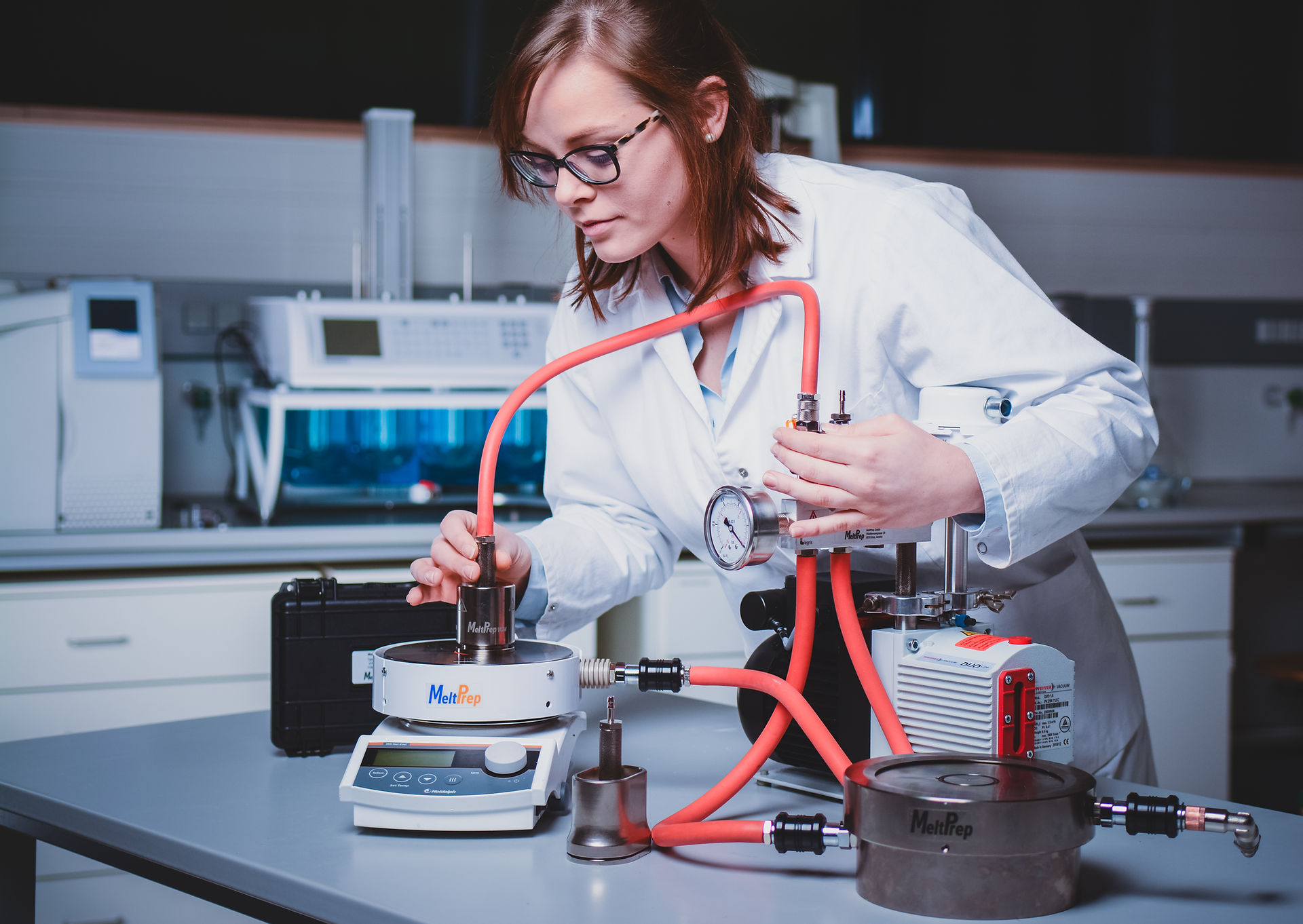
Frequently Asked Questions (FAQ)
VCM technology finds primary application in three key industries: pharmaceuticals, plastics, and food. Notably, within the pharmaceutical sector, four of the top 10 companies are utilizing VCM for Hot Melt Extrusion development. To gain a more comprehensive insight into the varied uses of VCM, explore our publications page.
The VCM process is lossless, ensuring that the output mirrors the input. Depending on your sample geometry, mere milligrams of material are needed to achieve a flawless sample. For instance, utilizing 1 gram of material yields a solid sample of 1 gram without any air inclusions or bubbles.
If you're working with costly materials and your characterization permits small sample sizes, typically less than 100 mg suffices for characterization purposes.
As a rule of thumb, processing typically takes less than 10 minutes. However, the specific processing time varies based on the material properties and the desired outcome. Processing smaller sample sizes is more time-efficient; for instance, 2 mm samples typically require approximately 3 minutes each, with 1:30 for heating and 1:30 for cooling. In contrast, working with curing materials, the process can take several hours.
We suggest thicknesses between 0.1 and 10 mm for VCM samples. Thickness may also depend on the material characteristics. If you have elastic polymers like TPU (Thermoplastic Poly Urethane) or EVA (Ethyl-Vinyl-Acetate), you can also reach thinner layers, for example, in the range of 50 µm.
Yes, it is possible to create multi-layer samples using the VCM process. Process each individual layer in its own VCM cycle. Once all the desired layers are ready, arrange them in the intended order and insert them back into the VCM tool for one final cycle, fusing the layers together. It's crucial to highlight that materials must be compatible, necessitating adhesion, comparable melting points, and similar viscosity levels at processing temperatures.
We've showcased a three-layer system in the NuvaRing Screening (click here to read the publication). Some of our clients, particularly those focused on implants, are exploring systems comprising up to ten distinct layers.
Yes, you can employ VCM technology over extended periods at consistent temperatures (e.g., 60 °C). The materials of the VCM parts are engineered to endure prolonged exposure. You can operate up to a temperature of 200 °C for several hours or even days, though with higher temperatures up to 300 °C, we advise limiting usage for brief operations.
It largely varies depending on the material system. Some materials require no additional mixing, as an amorphous system can be directly achieved with VCM when starting from a physical mixture of API and carrier material. As the API concentration approaches the solubility limit within the polymer, an extra mixing step is needed to attain a homogeneous amorphous outcome. Depending on the quantity of available material, this can be accomplished through cryo-milling or solvent casting.
Cryo-Milling
With material quantities between 100 mg and 5 grams, premixing your formulation through cryo-milling is recommended. Cryo-milling reduces particle size, and mixing is improved to a homogeneous level on the µm scale.
Solvent Casting
With material amounts below 100 mg, mixing can be achieved through thin film solvent casting as an ASD is achieved once the residuals dry. Then, the VCM process removes any solvent residuals, resulting in a homogeneous amorphous sample.
Both methods provide extrusion-like VCM results without the risk of shear degradation. Learn more about pre-mixing your sample material here.
Yes, the foils are reusable. The PTFE foils are reinforced with fiberglass, ensuring the Teflon retains its shape without flowing. This characteristic allows for multiple reuses. As a rule of thumb, we recommend using them up to 10 times before considering replacement.
No more tedious cleaning with VCM. The VCM sample chamber is fully PTFE-lined, adaptable in volume and the separation foils can simply be peeled off after the preparation process, which means no cleaning is required. After inserting new foils, the equipment is ready for the next preparation cycle. The foils are non-stick and can be wiped down and reused multiple times, making the process even more cost-efficient.
The mechanical energy input is negligible, as VCM does not have rotating or mechanical mixing components. The heat required to melt your material comes in via thermal conduction from the pre-heated hot plate. During heating, the hot plate does not exceed the maximum temperature set for the process, enabling precise temperature control in the system without risking the degradation of rare and sensitive materials.
